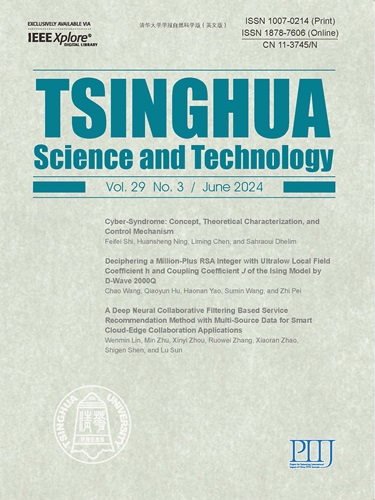Hierarchical Causal Model for Analysis of Complex Social System
IF 3.5
1区 计算机科学
Q1 Multidisciplinary
引用次数: 0
Abstract
Currently, various rapidly developing information technologies are gradually transforming traditional social systems into Complex Social Systems (CSS). On the one hand, individuals' ability to make decisions and access information is increasing, making their behaviors more unpredictable. On the other hand, technology is facilitating an increase in the intensity and scope of individual interactions, with cascade effects making the outcomes of interactions difficult to estimate. To improve the performance of CSS, it is essential to examine the causal laws that determine what kind of performance the system exhibits. However, researches on the causal laws of CSS remain scarce, leading to the lack of foundations for analyzing such systems. Inspired by computational experiments and causal analysis, this paper proposes a Hierarchical Causal Model (HCM) with three layers, each of which presents, extracts, and applies the causality. We apply the proposed model to enhance the system performance in a typical CSS, a software-enabled small-scale plant. Experimental results show that 98.38% of the working days have better system performance than the actual performance after applying our proposed model, and the mean of the median improvement reaches 41.38%. These results validate the proposed model, demonstrating that this work provides a feasible method for the analysis of CSS.复杂社会系统分析的层次因果模型
当前,各种快速发展的信息技术正逐步将传统社会系统转变为复杂社会系统(CSS)。一方面,个人的决策能力和获取信息的能力正在增强,这使得他们的行为变得更加不可预测。另一方面,技术促进了个人互动的强度和范围的增加,其级联效应使得互动的结果难以估计。为了提高CSS的性能,必须检查决定系统表现出何种性能的因果规律。然而,对CSS因果规律的研究仍然很少,导致分析CSS系统缺乏基础。在计算实验和因果分析的启发下,本文提出了一个三层的层次因果模型(HCM),每一层都对因果关系进行呈现、提取和应用。我们将提出的模型应用于典型的云存储系统(一个软件支持的小型工厂)中,以提高系统性能。实验结果表明,应用本文提出的模型后,98.38%的工作日系统性能优于实际性能,改进中位数的平均值达到41.38%。这些结果验证了所提出的模型,表明本工作为CSS分析提供了一种可行的方法。
本文章由计算机程序翻译,如有差异,请以英文原文为准。
求助全文
约1分钟内获得全文
求助全文
来源期刊

Tsinghua Science and Technology
COMPUTER SCIENCE, INFORMATION SYSTEMSCOMPU-COMPUTER SCIENCE, SOFTWARE ENGINEERING
CiteScore
10.20
自引率
10.60%
发文量
2340
期刊介绍:
Tsinghua Science and Technology (Tsinghua Sci Technol) started publication in 1996. It is an international academic journal sponsored by Tsinghua University and is published bimonthly. This journal aims at presenting the up-to-date scientific achievements in computer science, electronic engineering, and other IT fields. Contributions all over the world are welcome.
 求助内容:
求助内容: 应助结果提醒方式:
应助结果提醒方式:


